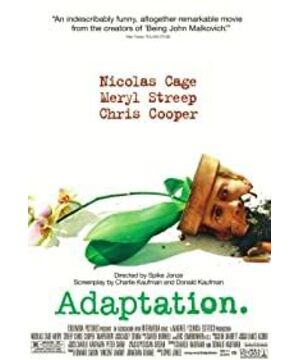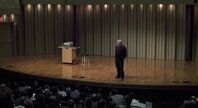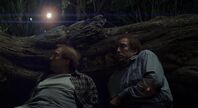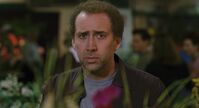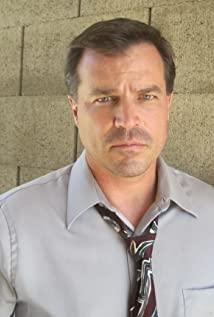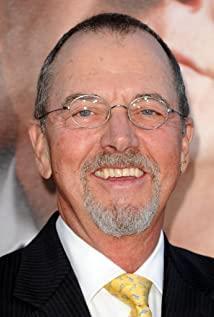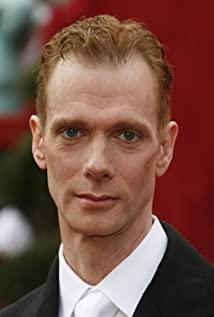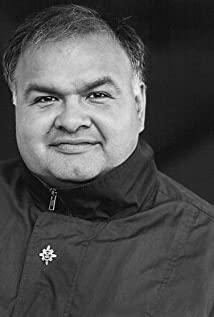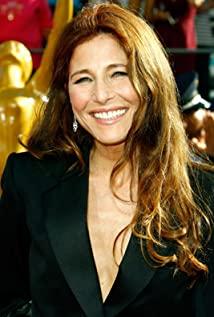When I saw this movie for the first time, I thought it was a very ambitious, intertwined but very clear literary and artistic film in the first 90 minutes. It is composed of three main lines and one sub-line. The thief" John LaRoche and three other Cimino Indians plan to steal and then clone a rare orchid to make a huge profit; the second main line is an interview with the famous New Yorker columnist Susan Ollin John LaRoche, and wrote his experience into the story of the book "The Orchid Thief". The third main line is the story of the Hollywood screenwriter Charlie Kaufman being asked to adapt the "Orchid Thief" into a movie script. Another side line is that Donald, the twin brother of Charlie Kaufman, moved to Charlie’s house and prepared to create a script for a vulgar horror film in the most Hollywood style. Through the above four symbolic story clues, the director conveyed a very rich content. John La Roche represents a kind of enthusiasm and perseverance that modern people lack. Manly. In his view, orchid is a metabolic process, and the meaning of life is a process. Susan Ollen is the opposite of John La Roche, representing a confused outlook on life. She interviewed John La Roche to find out his purpose of stealing orchids because she did not believe in the world. She has the purpose of "ghost orchid", orchid is her motive, and according to her own book, she did not find this magical orchid in the end, so although her "Orchid Thief" is completed, it is a book without a story. The plot, the works without themes, in Susan Ollin, represents a common utilitarian mentality of modern people, and the result is the value of everything. Charlie Kaufman represents a kind of attitude towards life of "now knowing and then realizing", representing the "silent majority". After all, these know right and wrong, have very keen insight and ability to perceive, but because they belong to " The character of "most", and fell into a certain self-defeating situation. The details of the bottleneck in Charlie Kaufman's adaptation of "Orchid Thief" are compared with Donald Kaufman's concocted vulgar horror film script which was highly praised, and he also coveted Hollywood genre creation.
However, 90 minutes later, that is, after Donald Kaufman pretended to be Charlie to visit Susan Orlin, the level of the film plummeted, and the following plot became a vulgar action film, Susan Orlean. Lynn and John LaRoche became villains who used rare orchids to refine drugs. They were discovered by the Kaufman brothers and they wanted to kill them. While fleeing, Donald died unfortunately and John LaRoche was also killed. At the mouth of the swamp crocodile, the villain was punished in the end, and Charlie Kaufman finished the script and mustered up the courage to confess to the beloved girl.
In fact, there has always been a hidden thread in this film, that is, the real-life screenwriter Charlie Kaufman is writing the script of "Adapted Screenplay". The twin Kaufman brothers actually represent the two tendencies of screenwriters. Charlie represents In order to go out of the ordinary and seek to break through the general film narrative structure and narrative techniques, he said in his own mouth that he did not want to turn this work (in the film refers to "Orchid Thief", which is actually the "Adapted Screenplay") into A popular genre drama, don’t turn into a drug dealer at the end, a chasing battle between the innocent and the police, the protagonist should not say something specious at the end, the feeling of great enlightenment, the great change of personality, etc., the popular tactics of the past, in In the play, Charlie Kaufman was in pain in order to achieve his goal, and almost got schizophrenia, and Charlie Kaufman, who was outside the play, also tried to achieve his goals through the development of multiple parallel plots; and Donald represents a realistic creative technique. He understands the audience's appreciation psychology and the producer's psychological positioning, and knows how to reduce the death of his own brain cells and win the favor of film companies. The struggle between the Kaufman brothers in the movie also hinted at Charlie Kaufman’s positioning of "Adapted Screenplay" in real life. Unfortunately, as Charlie became more and more talented and exhausted in the movie, he had to listen to a popular lesson. The Hollywood screenwriting class was scolded by the clichéd Hollywood "master screenwriters", and it also symbolized the disillusionment of Charlie Kaufman's original creative ideals. The sudden drop in the level of the film is actually Charlie Kaufman's script in reality. It is caused by Hollywood patterns such as sex, violence, and drugs.
At the end of the story, Kaufman was happy for the smooth completion of his work, and did not feel the sorrow of losing his brother at all, but I looked at this ending but there was some sorrow. It turns out that Hollywood's customary formula has such a powerful force, even The maverick geeks such as Charlie Kaufman can’t be kept away from it. Of course, from an optimistic perspective, it can also be said that Charlie Kaufman is ironizing Hollywood’s stereotyped screenwriters, but I’m going to go. Watching a few bad movies first, if there are such movies on the screen, I will have to die for a few years.
View more about Adaptation. reviews


